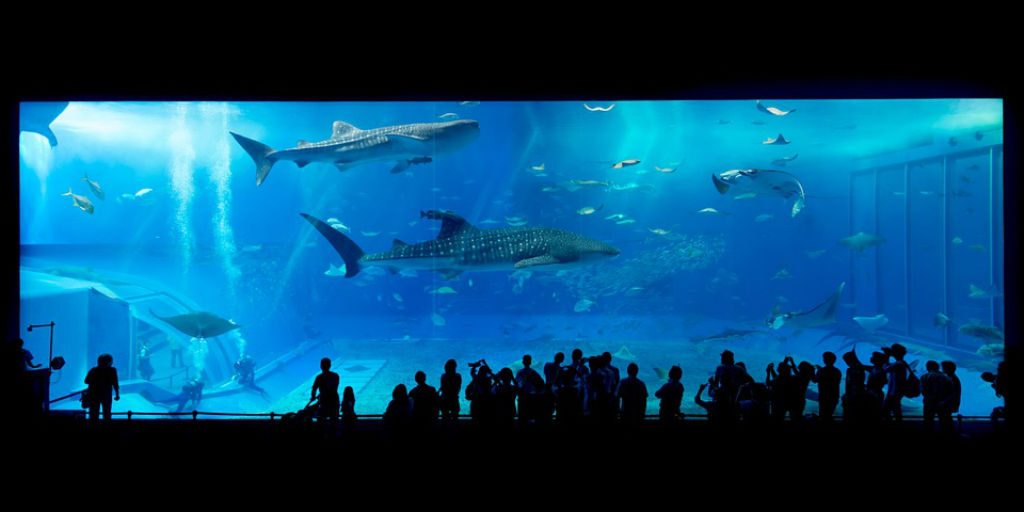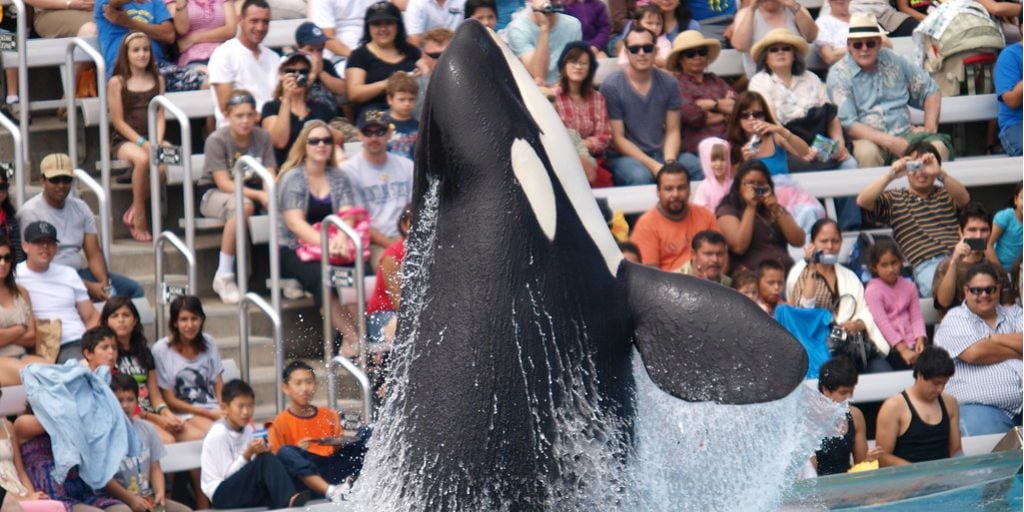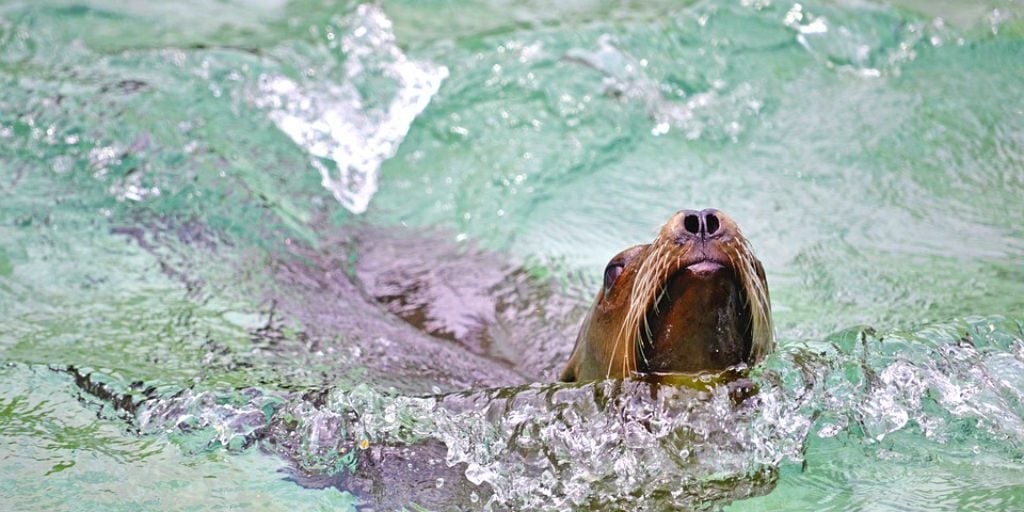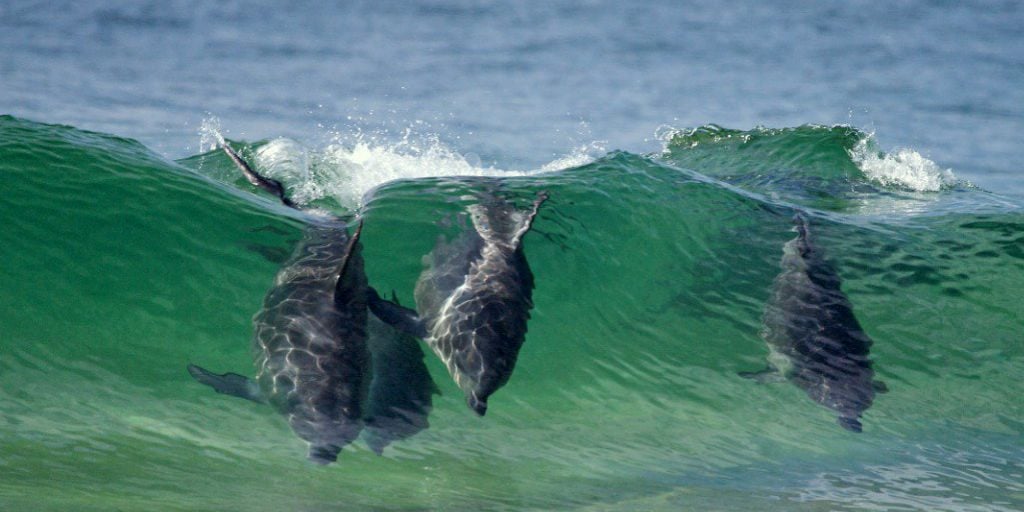Explore the different types of peccaries found in Costa Rica, as well as their importance in the local ecosystem, habitats, behavior, and social structure.
GVI
Posted: May 10, 2023

Marike Lauwrens
Posted: March 14, 2022
An aquarium: a tank filled with water in which marine creatures and plants are kept. But the question is, how ethical are aquariums?
Some people see no problem with aquariums, or zoos for that matter, and will rush to the nearest one to take a peek at our scaled friends from close up.
This ethical debate is as deep as the ocean itself. So, let’s take a closer look at aquariums.

Original photo: by Jordy Meow is licensed under CC BY-SA 2.0
If we take a group of people from different walks of life, put them in a room and pose a question about the ethics of aquariums, it will most likely result in a heated discussion.
In all likelihood, your perspective on aquariums has been shaped by various media, including movies and documentaries like Dolphin Tale, Fish Tank Kings, Tanked, Blackfish and Free Willy.

Original photo: “Right Up 0676” by mliu92 is licensed under CC BY-SA 2.0
A visit to the aquarium is a fond childhood memory for many people. You might remember the dolphins gracefully jumping out of the water, and you being left with soaking wet clothes and a big smile on your face.
Many aquariums showcase dolphins, penguins or seals to visitors. But how ethical is it to have animals on display for entertainment?
This question formed the basis of the 2013 documentary film, Blackfish. “Using animals for entertainment is the bottom of the ethical totem pole,” argues Gabriela Cowperthwaite, director of the film.

Original photo: by Paul Brennan is licensed under CC BY-SA 2.0
Many acclaimed marine biologists admit that their love of the ocean started many years ago, when they first visited an aquarium.
Aquariums can be a place of wonder and discovery, and many people advocate its purpose as a source of marine research, rehabilitation and education.
There are, however, aquariums that allow activities such as animal petting. Despite being very popular, this is not an ethical practice.
As an organisation working to advance the United Nations Sustainable Development Goal (UN SDG) 14: Life Below Water, and UN SDG 15: Life on Land, we promote conservation and animal welfare best practices.

Original photo: by Alexas_Fotos / 20709 images is licensed under CC BY-SA 2.0
We don’t endorse animal handling (except for necessary conservation activities). In addition to the possible dangers of getting close to wild animals, interacting with animals in this way interrupts their natural behaviour.
Each aquarium is different, and its level of ethicality should be considered individually.
Before visiting an aquarium, ask yourself the following questions:
If you could answer “yes” to any one of the above questions, you should reconsider your visit to this aquarium. The well-being of marine creatures and ecosystems should be our first priority.

Ask if the aquarium provides opportunities for visitors to learn about the ethics of aquariums, or the conservation activities it supports. If the answer is “yes”, that’s a great sign.
You could add to the ethical care of animals by contributing towards vital marine conservation projects around the globe.
Find out more about GVI’s award-winning marine conservation volunteering programs, internships abroad, virtual internships, and online courses – and make an impact in marine conservation today.
We understand that you may have questions about how COVID-19 will affect your travel plans. Visit our FAQs page which explains our latest safety protocols in response to COVID-19.
Disclaimer: The images in this article were taken pre-COVID-19
Original header background photo: by Tim B Motivv is licensed under Unsplash
Explore the different types of peccaries found in Costa Rica, as well as their importance in the local ecosystem, habitats, behavior, and social structure.
GVI
Posted: May 10, 2023